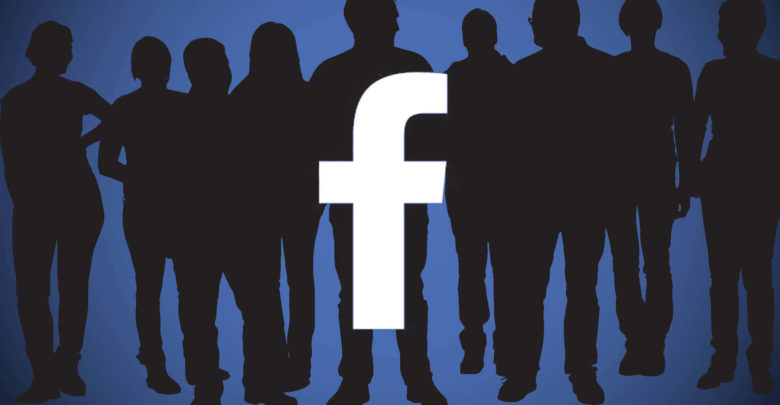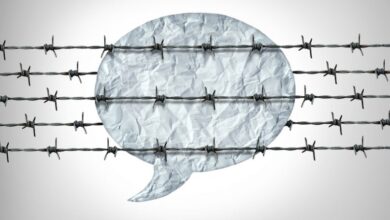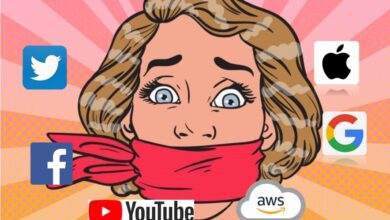Social Media and Cyber Laws
Facebook’s Oversight Board: A new Chapter
Facebook announced the draft charter for the constitution of an Oversight Board to take decisions on the questions of companywide practices on content regulation decisions in January 2019. This was a result of multiple instances which tarnished the image of the Company such as Cambridge Analytica, and incessant litigation across the globe. Wantonly, conversations spurted across the globe about the pros and cons of having a Company as large as Facebook, having a team that is appointed for itself for its oversight. The possibility of the Board to stand up to the Company’s business choices was questioned. The effectiveness of its decisions to steer Facebook towards ethical practices was debated.
After over a year of the initial announcement, Facebook officially introduced its Oversight Board yesterday. With a mandate to scrutinize the Company’s adherence to the internal rules on content moderation, it will function as an Appellate Body. The Oversight Board is to adjudicate on appeals to the decisions from the Company’s operational departments. In the long run, it also has the possibility of establishing Facebook’s now vague and opaque content related policy. As Mark Zuckerberg remarked, the Supreme Court of Facebook, will attempt to bring transparency and certainty to the Republic of Facebook.
Currently, the Board consists of 20 members from across the Globe, renowned for their commitment to free speech as well as expertise in politics in cyberspace. It is commendable that the Board is diverse in its membership. The Board has an equal number of men and women is a certain deliberate choice, which will add to its credibility. However, the effects of having a team of experts will only manifest when the Board starts giving decisions. The Company’s adherence to the decisions given will pave way for questions on the future of the Board. In the short run at least, this helps bring legitimacy to Facebook, a much needed face-saving.
This is not the first attempt by a tech giant in establishing mechanisms for transparency. While Google releases its semi-annual transparency reports on content moderation, Wikipedia, as early as in 2003, set up an Arbitration Committee to cater to dispute resolution. The Oversight Board, in its present form, tries to adopt a mechanism to handle both these tasks.
The 20 member board will be on the task of reviewing decisions, however, obscurity remains regarding algorithmic amplification. The use of such mechanisms has led to alleged interference with the democratic process across the globe. It also needs to find an answer to questions regarding the varying understanding of freedom of expression across the globe, to strike a fine balance with the laws governing these countries. The ability of a 20 member group, which may extend up to a 40 member group, to understand the working of a 2.2 Billion platform will determine if other tech companies will follow suit.
A previous attempt at self-regulation by BigTech in a similar fashion as Google’s AI Ethics Board, which was dissolved within a week of its formation. This step attempts to set an industry standard, particularly amongst the Big 5 Tech companies which have flourished on user data, generated first hand or otherwise. The expectation of accountability and values stemming from democracy might be a stretch in this case. However, taking such small is better than to stay in an environment stooped in nothing but corporate interests. It might not be unreasonable to hope that a Board decorated with Judges, Lawyers, and Nobel Laureates will not bend to support activity ignoring the rights they have proved to champion.
The understanding of intermediary liability might be set to change with the introduction of the Board. The continuous demands of governments and their changing laws might be decreed too uncertain and volatile for a platform such as Facebook to function in its full capacity. This could lead to this “Private Supreme Court” acting as a superior authority with cross-jurisdictional authority making decisions on what is allowable on the internet, making the intermediary a super-government. On the other hand, it might be the doyen of internationalism through mindful moderation of speech which brings together a broken world. In a world moving faster towards capitalistic notions of economic welfare, stuck amidst a pandemic resulting in greater leeway for corporations, this might become the enabler of ethics on speech in cyberspace. An increase in the vitriolic speech which can have grave consequences while handling and recouping from a pandemic may also be curbed for the better.
The Board members have stated that they are independent of the Company. The Charter, bylaws and “values” clarify that the Company’s primary commitment remains towards its shareholders. The decisions of the Board are binding only on their decisions. It does not have implications on changing the Company policies as yet. This includes its rampant data collection, targeted advertising, and anti-competitive practices. The mere answers on takedowns due to reasons of hate speech, harassment, etc. will not abdicate the governments across the globe from regulating cyberspace better.
As much as India is concerned, having Prof Krishnaswamy on the Board is a matter of pride. India may gain an important say in shaping the global conversation on freedom of speech and cyberspace through what he brings to the table. However, this will only be worthwhile with a robust framework in India protecting freedom of speech in the cyberspace, and respecting privacy by institutionalizing such measures furthering the same. It cannot happen in the devoid of a data protection law, clear guidelines on intermediary liability, and a reformation of the IT Act and usage of technology in policing.






